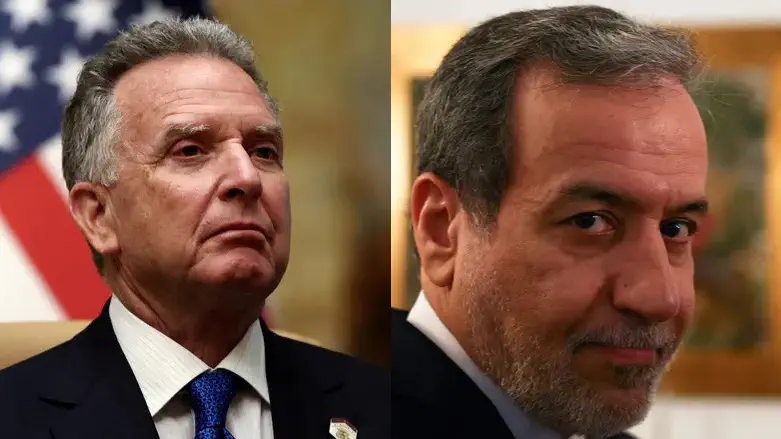
A fifth round of high-stakes negotiations between Iranian and US delegations concluded in Oman on Friday, with the mediating nation reporting "some but not conclusive progress" in efforts to resolve a decades-long dispute surrounding Tehran's nuclear ambitions, Reuters reported.
Despite public tough stances from both Washington and Tehran ahead of the talks, Iranian Foreign Minister Abbas Araghchi indicated potential for advancement following proposals put forth by Oman during the discussions in Rome.
"We have just completed one of the most professional rounds of talks," Araghchi told state TV. "We firmly stated Iran's position... The fact that we are now on a reasonable path, in my view, is itself a sign of progress."
He added that proposals and solutions would be reviewed by both capitals, with the next round of talks to be scheduled accordingly.
A senior US official told reporters in a statement that the fifth round of nuclear talks with Iran was “constructive.”
“We made further progress, but there is still work to be done,” the official stated, adding that both sides agreed to meet again “in the near future.”
Omani Foreign Minister Badr Albusaidi confirmed on X that the talks between Araghchi and US President Donald Trump's Middle East envoy Steve Witkoff had concluded with limited progress.
Iran has repeatedly insisted that its right to uranium enrichment is "non-negotiable," a stance directly at odds with Witkoff, who has labeled it a "red line".
Araghchi reiterated this stance ahead of the talks, writing in a post on X on Thursday, “Figuring out the path to a deal is not rocket science: Zero nuclear weapons = we DO have a deal. Zero enrichment = we do NOT have a deal. Time to decide…”
The Islamic Republic currently enriches uranium to 60 percent, significantly above the 3.67-percent limit stipulated in the 2015 agreement.
While the first four rounds of talks between Iran and the US were described as positive, Iran's Supreme Leader, Ayatollah Ali Khamenei, voiced doubts about the prospects of the talks earlier this week.
Trump has repeatedly said he prefers the path of diplomacy with Iran, but has not ruled out the possibility of a military operaton against its nuclear facilities should talks fail.
(Israel National News' North American desk is keeping you updated until the start of Shabbat in New York. The time posted automatically on all Israel National News articles, however, is Israeli time.)
